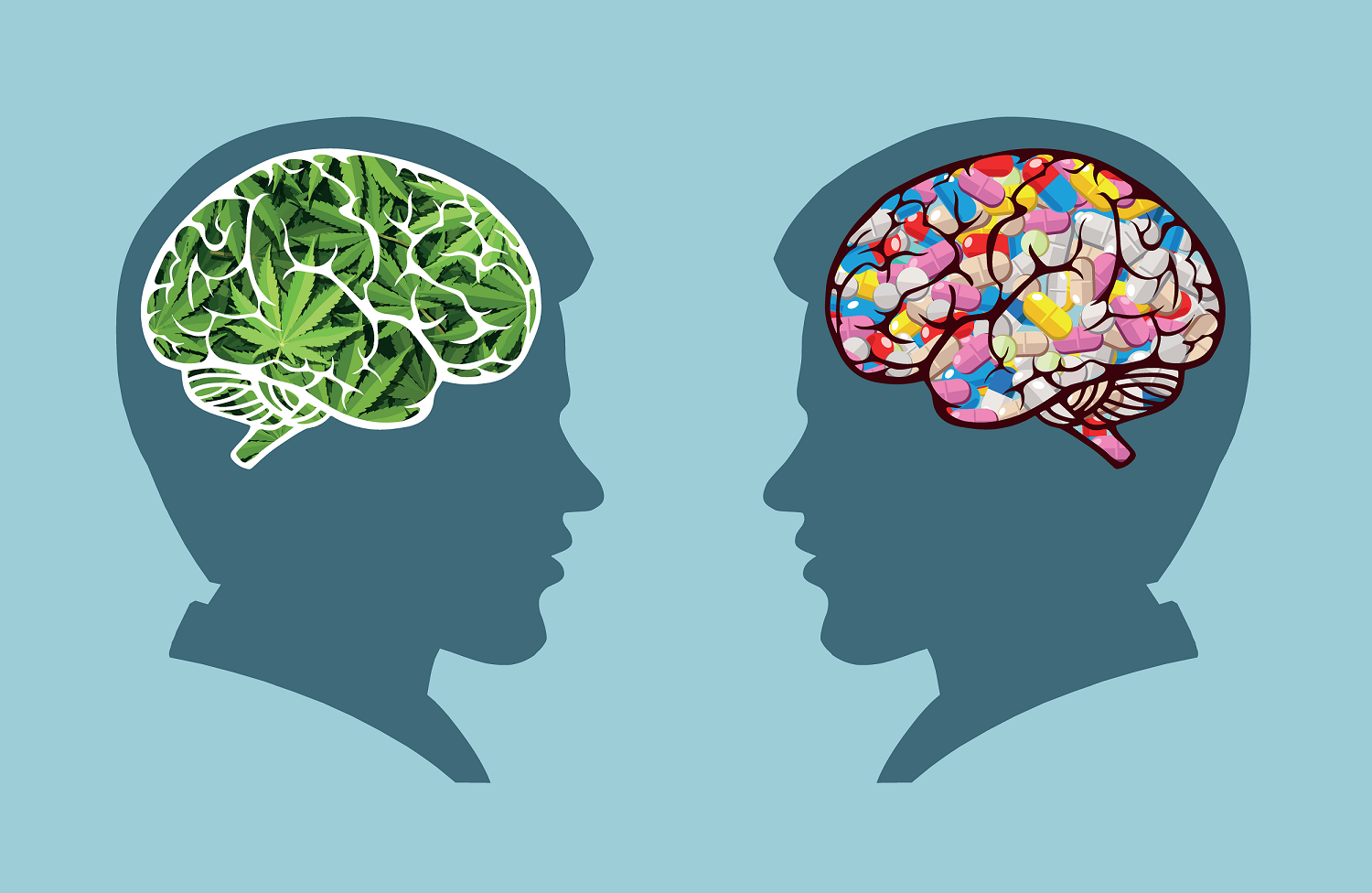In This Article
- Which Cannabinoids Help Most With Autism?
- CBD
- THC
- Other Cannabinoids
- Which Cannabinoid Concentrations and Ratios Help Most With Autism?
- CBD-Dominant Ratios
- THC-Dominant Ratios
- Balanced Ratios
- How to Choose Strains for Autism Based on Cannabinoid Content
- Cannabinoid Profile
- Strain Family
- Secondary Cannabinoids
- 5 Strains that Patients Report Helping with Autism Symptoms
- Remedy
- Forbidden V
- Pinewalker
- GMO Cookies
- Charlotte’s Web
- References
Key Takeaways
- Cannabis may help autistic individuals manage co-occurring symptoms, especially with an appropriate cannabinoid blend.
- Combining THC and CBD may provide a more balanced effect that could be ideal for some autistic patients.
- Strains like Remedy, GMO Cookies, and Charlotte’s Web have been reported to help.
There's a wide range of cannabis products with varying cannabinoids available to today’s consumers. As a result, patients often use medical cannabis for relief from a broad number of conditions, including autism.
While research is still developing, anecdotal reports reveal that individuals who use cannabis for autism often do so to manage the condition’s co-occurring symptoms.
Cannabinoids like CBD and THC may play a key role in providing beneficial effects. While many use THC for autism, for symptoms relating to mood, anxiety, and social phobias, CBD can be better suited for other symptoms, like sleep disturbances.
Which Cannabinoids Help Most With Autism?
Research into the effects of cannabinoids on autism is still in its early stages. Findings so far suggest that certain cannabinoids may help manage specific symptoms.
However, it's also highly dependent on the person. Autistic individuals can present with a wide range of symptoms that can vary in severity.
CBD
In a systematic clinical review, researchers assessed how cannabis use affected symptoms of autism spectrum disorder (ASD). They tested CBD-rich cannabis oil with varying proportions of CBD and THC on certain behaviors. Proportions ranged between 6 and 75% CBD combined with 1 to 1.5% THC, while some used pure CBD. The specific autism-associated symptoms observed included:
- Depression
- Perseverance
- Social interaction and language change
- Cognition
- Sensory sensitivity
- Aggressiveness
- Irritability
- Psychomotor agitation
- Irritability
- Anxiety
- Sleep problems
- Hyperactivity
- Bouts of self-mutilation and anger
Results noted improvement across these behaviors in many of the studies' participants.1
In another study, parents of children with autism received a 20:1 CBD:THC cannabis extract. They were given details on how to increase drops gradually until they saw behavioral improvements, never exceeding 400mg CBD and 20mg THC per day. Behaviors observed included sleep disturbances and hyperactivity, aggressiveness, and irritability. Parents (and clinical scores) saw an improvement in their child's social communication skills.2
THC
THC may be beneficial for autism, especially in combination with CBD. In a study on oral CBD use in autistic children, the max daily dose was 600mg CBD and 40mg THC. Results show that children had decreased hyperactivity, self-injurious behavior, and sleep problems. 74.5% of participants reported an overall improvement.3
A separate study evaluated the influence of medical cannabis on autistic children. Children were first given one year of treatment. Their specific responses over that year helped determine a unique medical cannabis regimen for each child. THC-dominant medical cannabis was given to 40% of the children, with the other 60% receiving a CBD-rich dosage instead. Parents reported their children's improvement in several areas, including:
- Restricted and repetitive behaviors by 73.3%.
- Attention by 92.6%.
- Negative behaviors such as aggression, tantrums, and outbursts by 76.9%.
- Behavioral regulation by 86.7%.
- Emotional regulation by 86.7%.4
Other Cannabinoids
Minor cannabinoids like CBG for CBDV have also shown the potential to help manage symptoms of autism. Research is more limited in these areas, but patient reports suggest they might offer additional benefits like improved cognitive function and reduced repetitive behaviors.
Ultimately, cannabis' effectiveness in managing autism symptoms varies from person to person.
Which Cannabinoid Concentrations and Ratios Help Most With Autism?

Finding the right balance of cannabinoids is key when using cannabis to manage autism-related symptoms. The concentration and ratio of CBD and THC can impact how effective the treatment is for each person.
CBD-Dominant Ratios
For many patients, CBD for autism shows promising results when used in higher concentrations. Several studies use a maximum daily dose of 600mg CBD while limiting THC to less than 50mg. In these cases, CBD may provide calming effects. Likewise, smaller doses of THC may help without THC's intoxicating factor.2
THC-Dominant Ratios
In some cases, patients may benefit more from a THC-dominant approach, especially when combined with CBD. About 40% of participants in one study received a THC-rich cannabis extract, with doses ranging from 0.05mg to 50mg per dose. This higher THC concentration was effective in helping with emotional and behavioral regulation. It also helped reduce negative behaviors like aggression and tantrums.4
However, it's important to remain cautious when considering higher doses of THC for autism. Sometimes, it may lead to unpleasant effects like "greening out," which include dizziness, anxiety, or nausea.
Balanced Ratios
Combining THC and CBD may help mitigate these effects, often resulting in a more balanced and tolerable experience.
An equal ratio of CBD and THC may be the best option for some. THC may provide mood improvement, reduce anxiety, and make social interactions easier. CBD may offer calming effects, helping some with sleep.
1:1 ratios may offer the benefits of both cannabinoids, providing relief without overwhelming the patient.
Choosing the right cannabinoid concentration for autism is highly personal. It depends on the individual’s symptoms, how they react to cannabis, and what kind of relief they’re seeking. Finding the best cannabinoids for autism often requires trial and error.
How to Choose Strains for Autism Based on Cannabinoid Content
There are several factors to consider when seeking the most suitable cannabis strains for symptoms of autism. The following factors can help you tailor your experience to your specific needs.
Cannabinoid Profile
Focus on the strain’s cannabinoid profile, specifically CBD and THC content. Some autistic individuals may prefer high-CBD strains for their calming effects without intoxication. Others prefer strains high in THC for autism symptoms.
Many patients may find cultivars with an equal ratio of CBD and THC to be helpful for a balanced experience of mood regulation and anxiety relief.
Strain Family
Understanding strain families may help narrow down which cultivars are better for different symptoms.
Haze (e.g., Forbidden V)
Strains from the Haze family may have uplifting and energizing effects. Patients often report that Haze cultivars help with focus and reduce repetitive behaviors. These varieties may also provide a clear-headed experience to support cognitive function better.
Cookies (e.g., GMO Cookies)
Strains from the Cookies family are typically reported to have balanced effects. While varieties vary in THC and CBD content levels, the blend of cannabinoids often provides relaxation and mood enhancement. Some may find it a suitable choice for managing symptoms of anxiety and stress.
Sauce (e.g., Pinewalker)
The Sauce strain family offers a wide range of cultivars that patients note can provide them with relaxation and mental clarity. Sauce cultivars often have a cannabinoid profile that includes minor cannabinoids like CBDV, which may help improve focus and reduce anxiety symptoms. Some may find sauce strains helpful for managing symptoms like repetitive behaviors and hyperactivity.
Skunk (e.g., Remedy)
Strains from the Skunk family are generally classified as indica-dominant with classic indica traits of potent calming effects. High-CBD Skunk strains might help with irritability and anxiety without strong intoxicating effects. They could be helpful in situations requiring deep relaxation.
Secondary Cannabinoids
Consider the potential benefits of secondary cannabinoids like CBDV and CBG for autism. Strains with higher concentrations of these cannabinoids, anywhere around 1%, such as those from the Haze and Sauce families, may offer further therapeutic effects.
A study looked at whether CBDV could help with ASD-associated behaviors. Symptomatic rats saw an improvement in hyperactivity, recognition memory impairment, and repetitive self-grooming. Likewise, they saw a boost in sociability and social novelty preference. While it was an animal study, results suggest there might be similar findings for humans.5
5 Strains that Patients Report Helping with Autism Symptoms

Below are cannabis strains reported to help manage certain symptoms associated with autism. Here's what other patients are reporting as the most effective cannabis for autism.
Remedy
- Strain Family: Skunk (Cannatonic x Afghan Skunk)
- Cannabinoid Profile: High-CBD, Low-THC
Why It May Help
Remedy is known for its high CBD content and minimal THC, with typically a 13:1 ratio. That makes it an appealing choice for those seeking CBD's effects without THC's intoxicating impact. Some patients report that Remedy helps with symptoms of anxiety, irritability, and sleep issues. These are common challenges for those on the autism spectrum. The strain's calming effects may provide a sense of relaxation without overwhelming.
Forbidden V
- Strain Family: Haze (Suver Haze x VARIN Type 1)
- Cannabinoid Profile: Elevated levels of CBDV, Moderate THC
Why It May Help
Forbidden V, from the Haze family, has elevated levels of CBDV. It's often associated with uplifting and clear-headed effects. Patients report that this strain can help them improve focus and reduce repetitive behaviors, which are frequent in autism. The presence of CBDV in Forbidden V may also lead to cognitive function improvement and anxiety reduction.
Pinewalker
- Strain Family: Sauce (Special Sauce x VARIN Type 1)
- Cannabinoid Profile: Elevated levels of CBDV, Moderate THC
Why It May Help
Pinewalker is another strain with elevated levels of CBDV belonging to the Sauce family. Known for its complex and robust effects, patients note that Pinewalker may offer mental clarity alongside relaxation. As a result, it might aid in managing hyperactivity and repetitive behaviors. Its balanced cannabinoid profile could be helpful for those seeking to improve focus while maintaining a calm state of mind.
GMO Cookies
- Strain Family: Cookies (Chemdawg x Girl Scout Cookies)
- Cannabinoid Profile: High THC and elevated levels of CBD
Why It May Help
GMO Cookies is a strain from the Cookies family, celebrated for its balanced effects of relaxation and mood enhancement. Patients dealing with anxiety, stress, and mood swings may find relief from this strain. Its blend of cannabinoids might help some with social interactions and others with stress management. However, its effects can vary depending on individual tolerance and needs.
Charlotte’s Web
- Strain Family: Unique (cannabis strain x industrial hemp strain)
- Cannabinoid Profile: High-CBD, Low-THC
Why It May Help
Charlotte’s Web is a cross between a cannabis strain and an industrial hemp strain, making it one of the lower-THC strains on the market. It’s often recommended for those new to cannabis or those who prefer to avoid any intoxicating effects. Patients might use Charlotte’s Web for its calming effects, helping to manage anxiety, sensory sensitivities, and mood swings without causing intoxication.
It's important to note that individual responses to these strains can vary widely. Start with low doses and consult a healthcare professional to find the best strain and dosage for your needs.
References
- Silva EAD Junior, Medeiros WMB, Torro N, et al. Cannabis and cannabinoid use in autism spectrum disorder: a systematic review. Trends Psychiatry Psychother. 2022;44:e20200149. doi:10.47626/2237-6089-2020-0149 ↩︎
- Hacohen M, Stolar OE, Berkovitch M, et al. Children and adolescents with ASD treated with CBD-rich cannabis exhibit significant improvements particularly in social symptoms: an open label study. Transl Psychiatry. 2022;12(1):375. doi:10.1038/s41398-022-02104-8
↩︎ - Barchel D, Stolar O, De-Haan T, et al. Oral Cannabidiol Use in Children With Autism Spectrum Disorder to Treat Related Symptoms and Co-morbidities. Front Pharmacol. 2019;9:1521. doi:10.3389/fphar.2018.01521 ↩︎
- Siani-Rose M, Cox S, Goldstein B, Abrams D, Taylor M, Kurek I. Cannabis-Responsive Biomarkers: A Pharmacometabolomics-Based Application to Evaluate the Impact of Medical Cannabis Treatment on Children with Autism Spectrum Disorder. Cannabis Cannabinoid Res. 2023;8(1):126-137. doi:10.1089/can.2021.0129 ↩︎
- Zamberletti E, Gabaglio M, Woolley-Roberts M, Bingham S, Rubino T, Parolaro D. Cannabidivarin Treatment Ameliorates Autism-Like Behaviors and Restores Hippocampal Endocannabinoid System and Glia Alterations Induced by Prenatal Valproic Acid Exposure in Rats. Frontiers in Cellular Neuroscience. 2019;13. doi:https://doi.org/10.3389/fncel.2019.00367
↩︎
The information in this article and any included images or charts are for educational purposes only. This information is neither a substitute for, nor does it replace, professional legal advice or medical advice, diagnosis, or treatment. If you have any concerns or questions about laws, regulations, or your health, you should always consult with an attorney, physician or other licensed professional.




